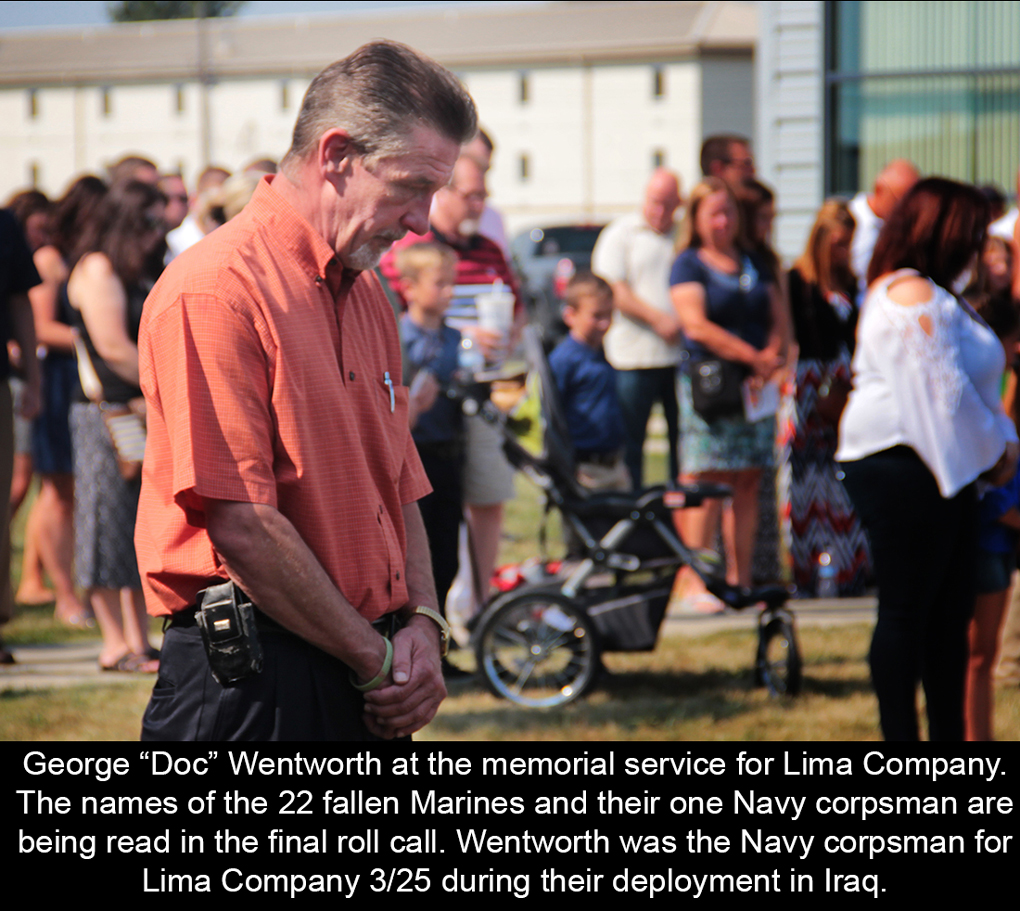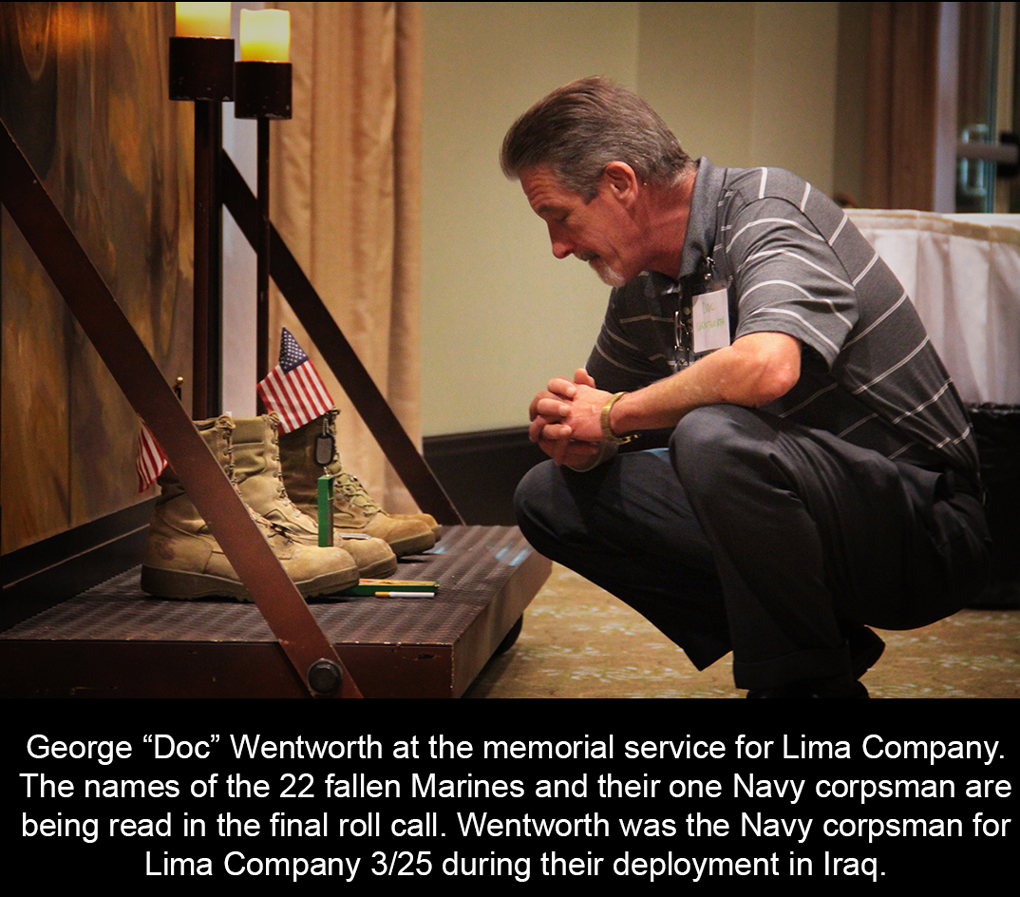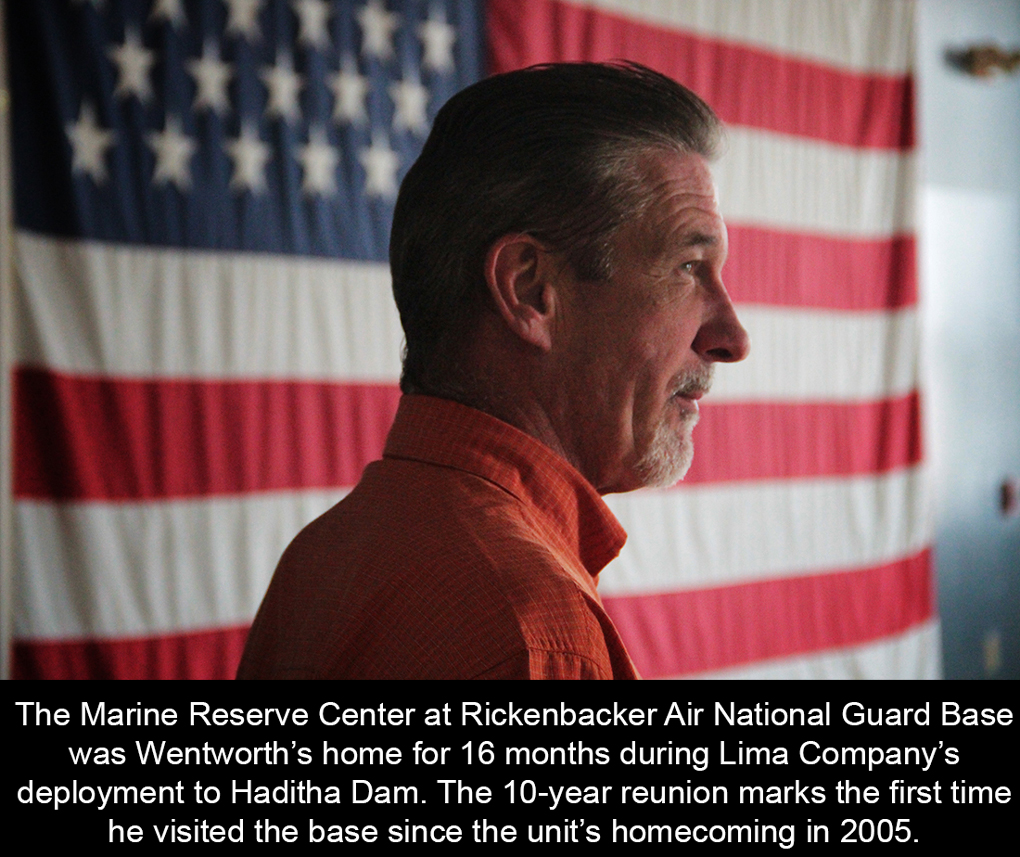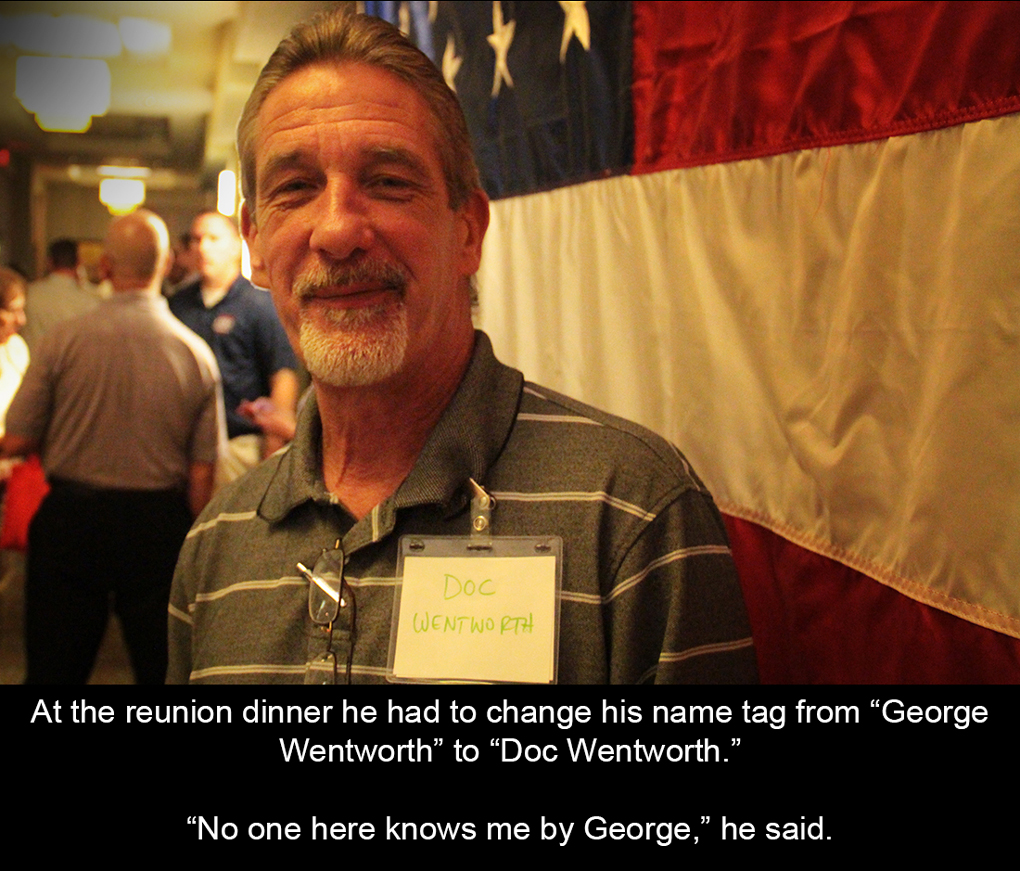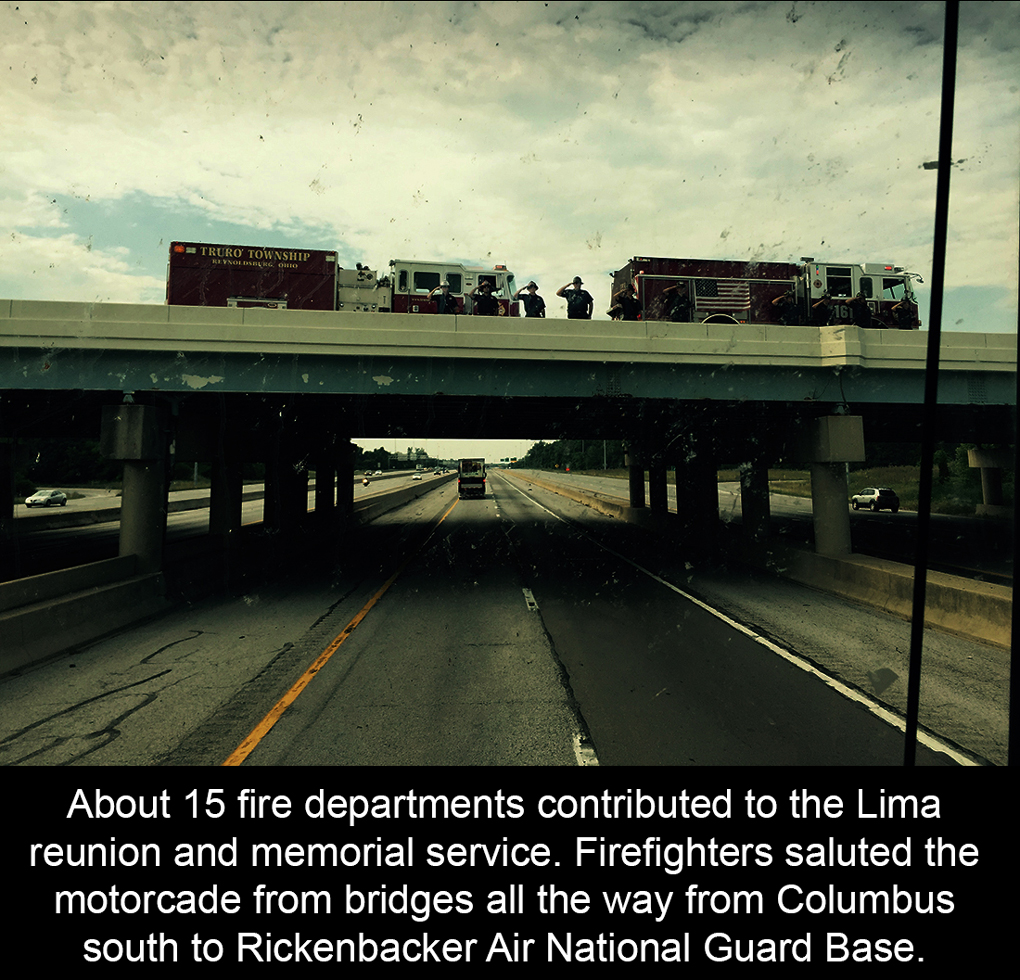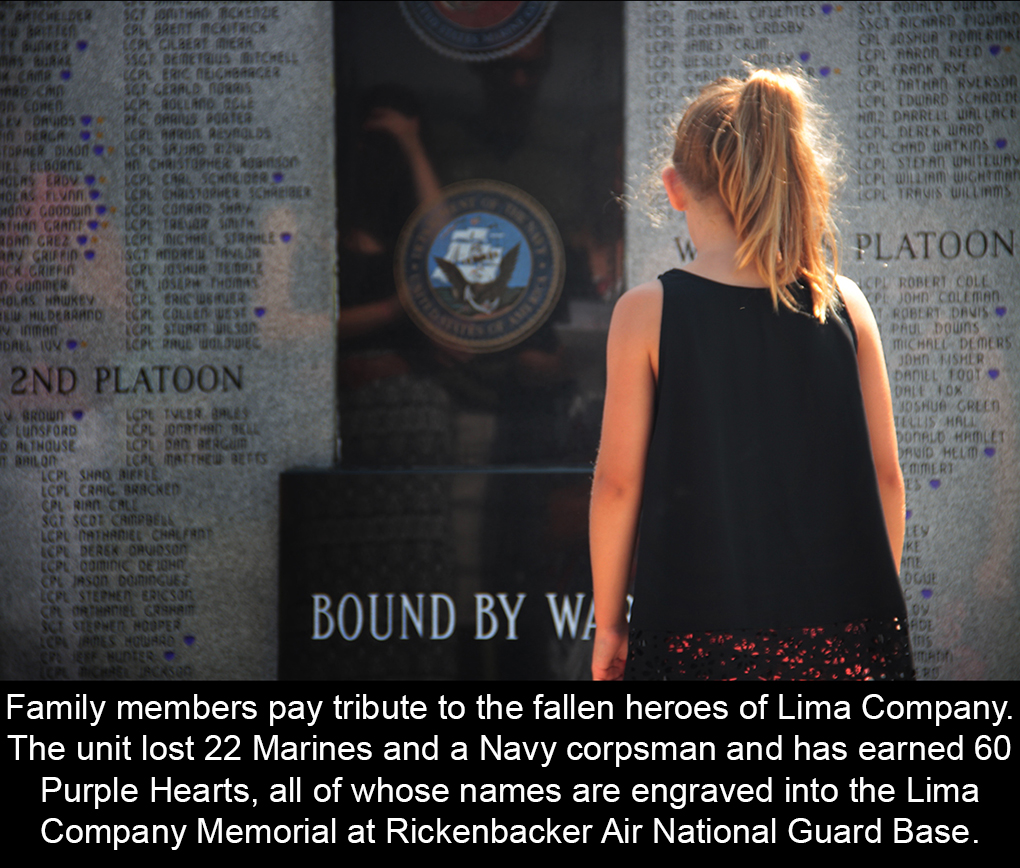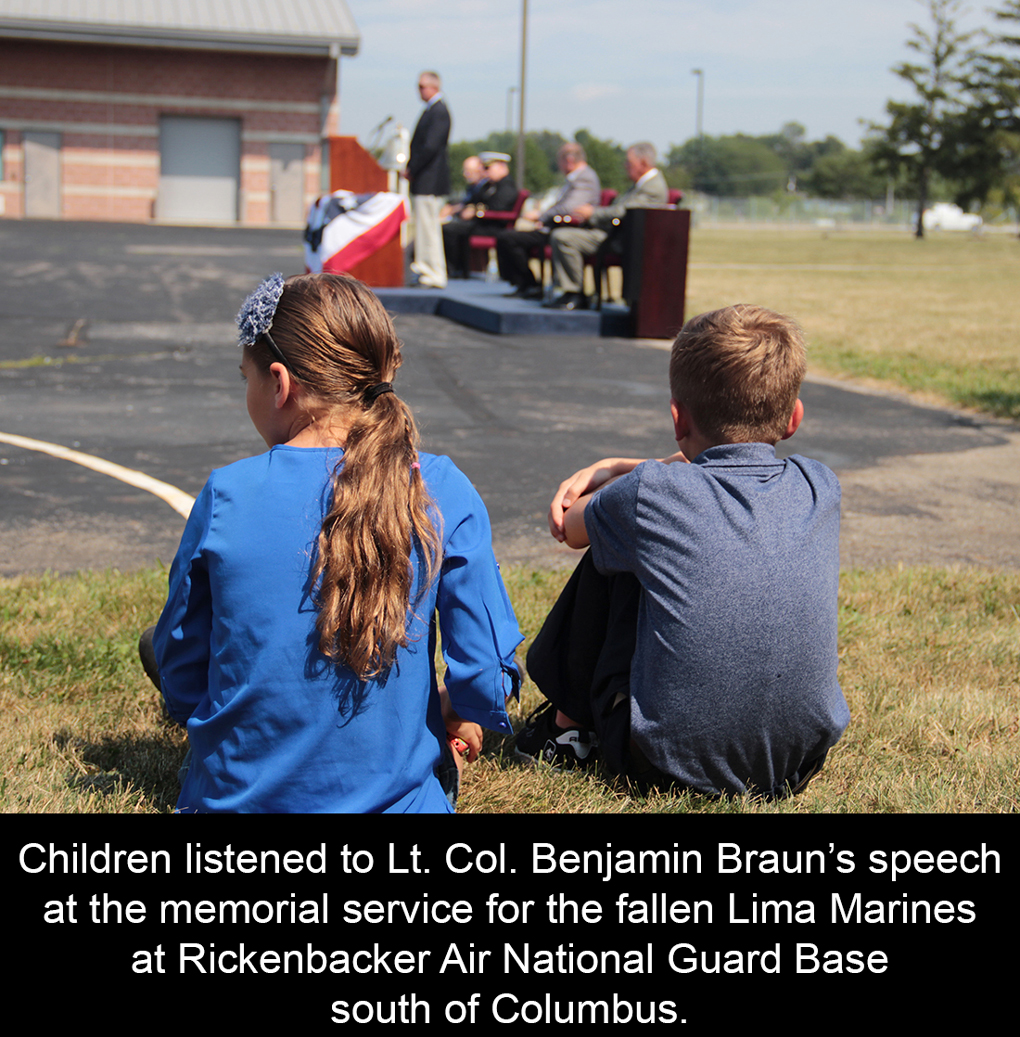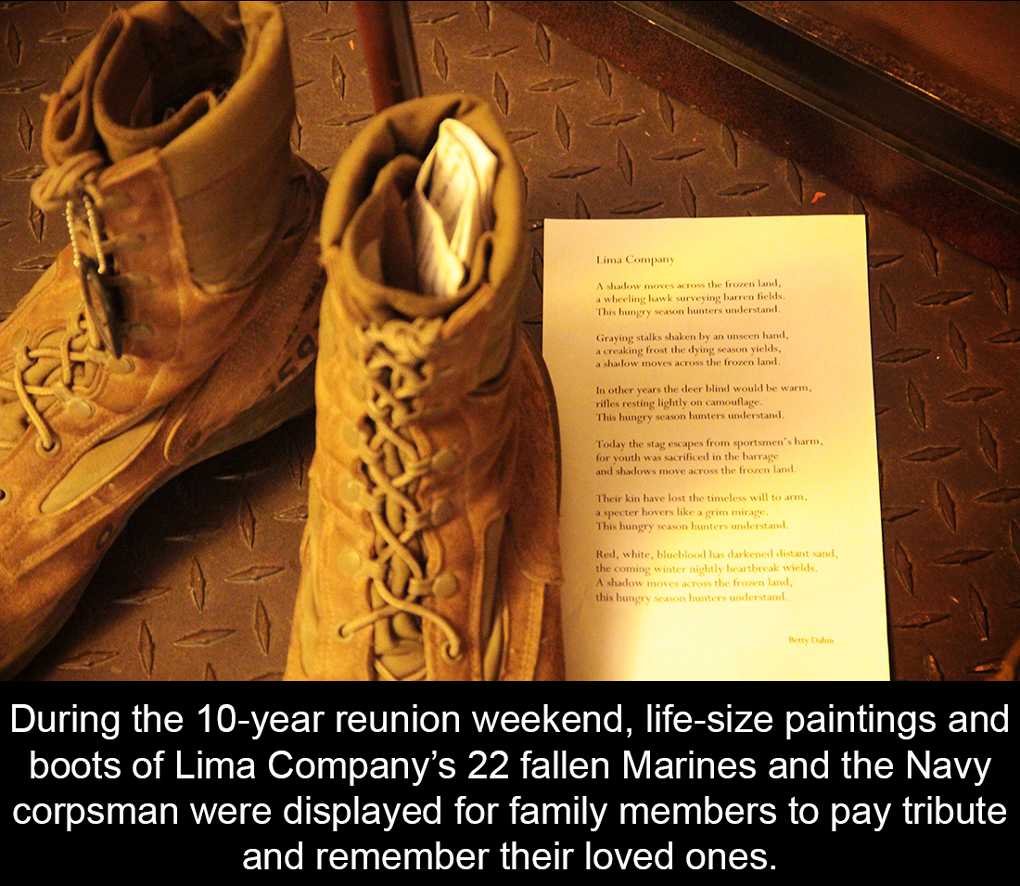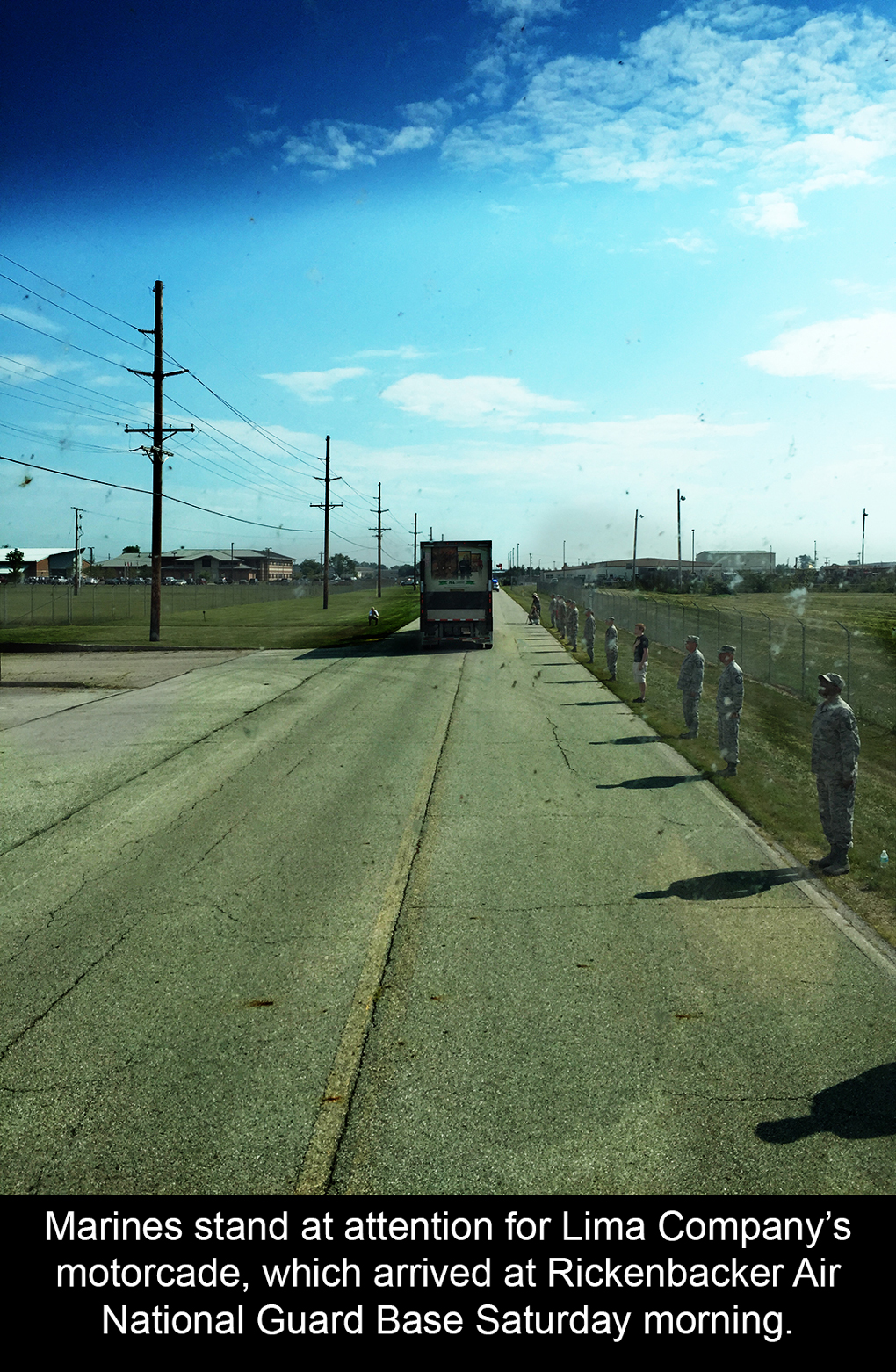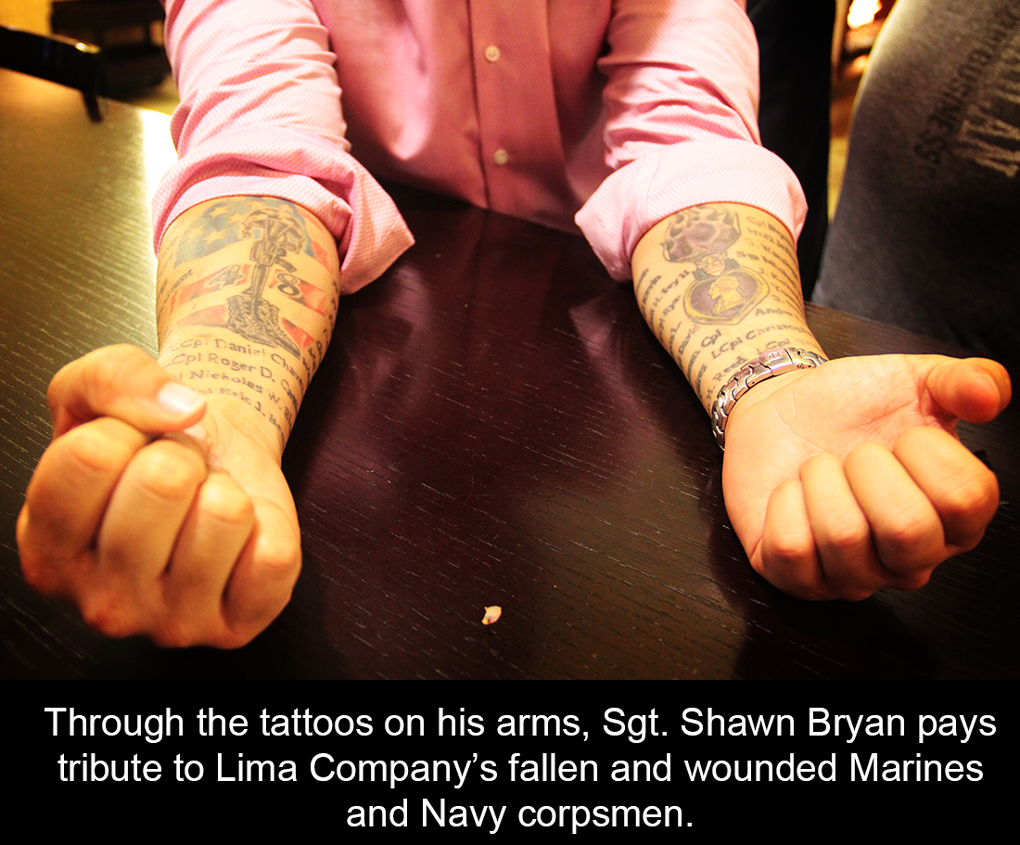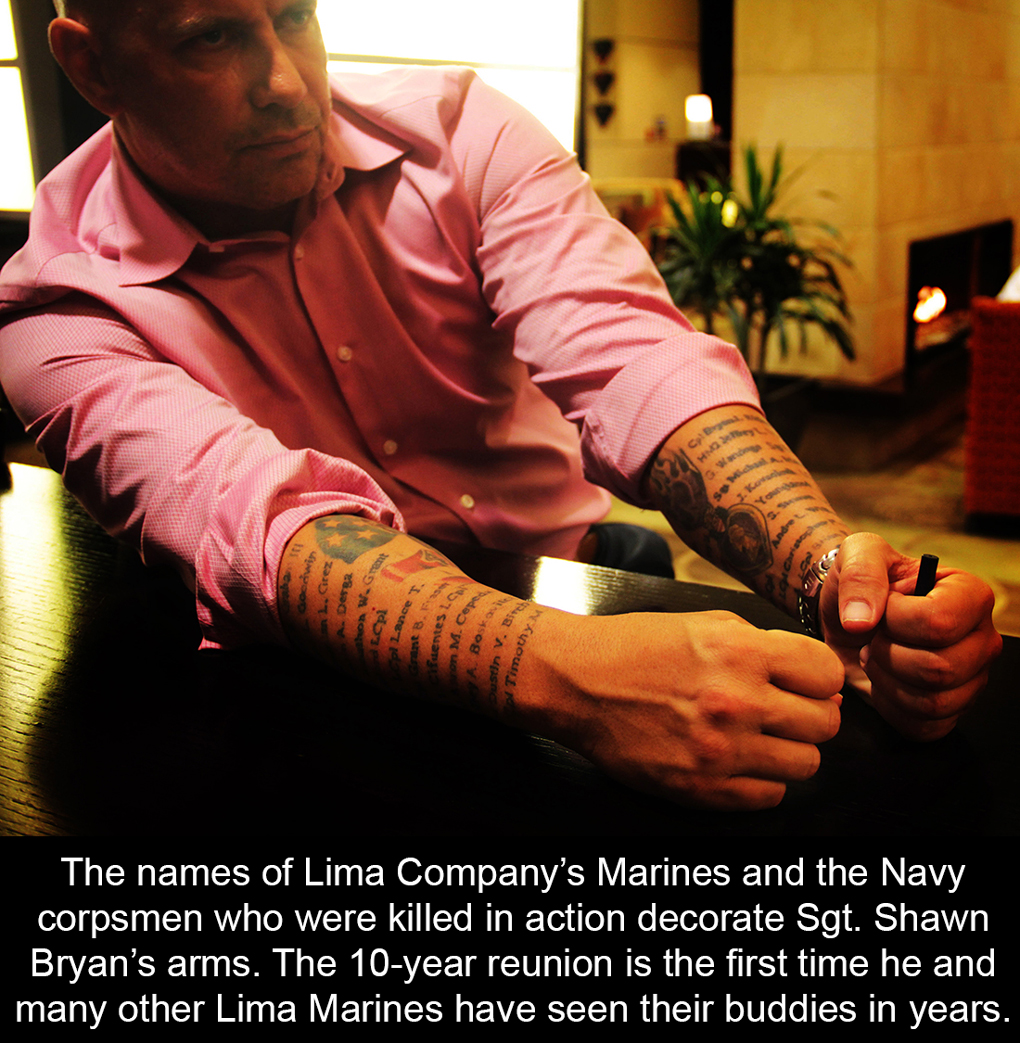COLUMBUS, Ohio — On Mother’s Day 2005, George Wentworth got a phone call that would change his life forever.
The Navy corpsman was informed that two Marines in his unit were killed in action in Iraq. They were the first of 23 casualties sustained by Lima Company, 3rd Battalion, 25th Marines — the highest casualty rate of any Marine Reserve unit in the Iraq War.
Wentworth was on the last day of his 30-day assignment at Rickenbacker National Air Guard Base, just south of here. But 16 months later he was still there, transporting bodies of the fallen and taking the wounded to hospitals and other facilities. Unofficially, he was providing emotional support to the families, as well as to wounded Marines who had returned home.
In the past decade, Wentworth — known only as “Doc” to members of Lima Company — listened, dried tears and “had to bend the rules sometimes to make sure my Marines were taken care of,” he said.
The unit’s 10-year reunion, held Aug. 15-16, was the first time he’d seen some of the men since their return from Iraq. After their October 2005 homecoming, Wentworth tried to keep in touch through email and social media, but eventually many of the connections drifted away. This reunion, in his opinion, was exactly what these veterans needed.
“I’m a firm believer that the best medicine possible is Marines talking to each other,” he said.
After the unit’s return, Wentworth sat down with each Marine in the unit, asked them questions and filled out forms used to determine whether their conditions could be identified as PTS. About 30 percent of the unit received a PTS diagnosis, he said.
But the Lima Marines know that Wentworth did a lot more than just checking boxes on forms. The night before the reunion, one of the Marines spotted Wentworth from across the hotel lobby.
“Holy sh–, Doc. I almost didn’t recognize you,” he said, pointing at Wentworth’s gray hair. “I probably caused a lot of this.”
Seeking mental health care — even for a unit like Lima Company that suffered an exceptional number of casualties — was considered a stigma. Whenever Marines had to visit Wentworth or other medical practitioners, they simply referred to them as “wizards.”
While taking care of the families whose sons had died, Wentworth sacrificed as well. After he returned from his assignment at Rickenbacker, he suffered from severe migraines and nightmares that were the onset of his own PTS. And ultimately, taking care of his Lima family resulted in him losing his own.
Wentworth was familiar with these emotions from his 2003 deployment to Iraq. He knew that the post-traumatic stress was going to hit him at some point. But his memories with Lima Company didn’t compare to anything he’d experienced before.
“We had nine funerals in five days,” he said. “How could you possibly prepare yourself for something like this?”
During the reunion here, Marines and their families came up to Wentworth, gave him long hugs, maybe brief smiles. Few words were spoken between them.
“We don’t need to talk,” Wentworth said. “We just react. It’s already been said.”
In 2009, Wentworth retired from his job as Navy corpsman, went back to school and now works at a hospital in Kentucky. After his PTS onset in 2006, he had to see counselors himself. He remembers how he turned to alcohol to block his memories.
“The only way to get through it was to stay extremely busy,” he said.
In the past decade, Wentworth learned to accept that there is no escape from the past. But reuniting with his fellow Lima Company Marines was a step in the right direction.
“This is not about moving on — it’s about moving forward,” he said.

